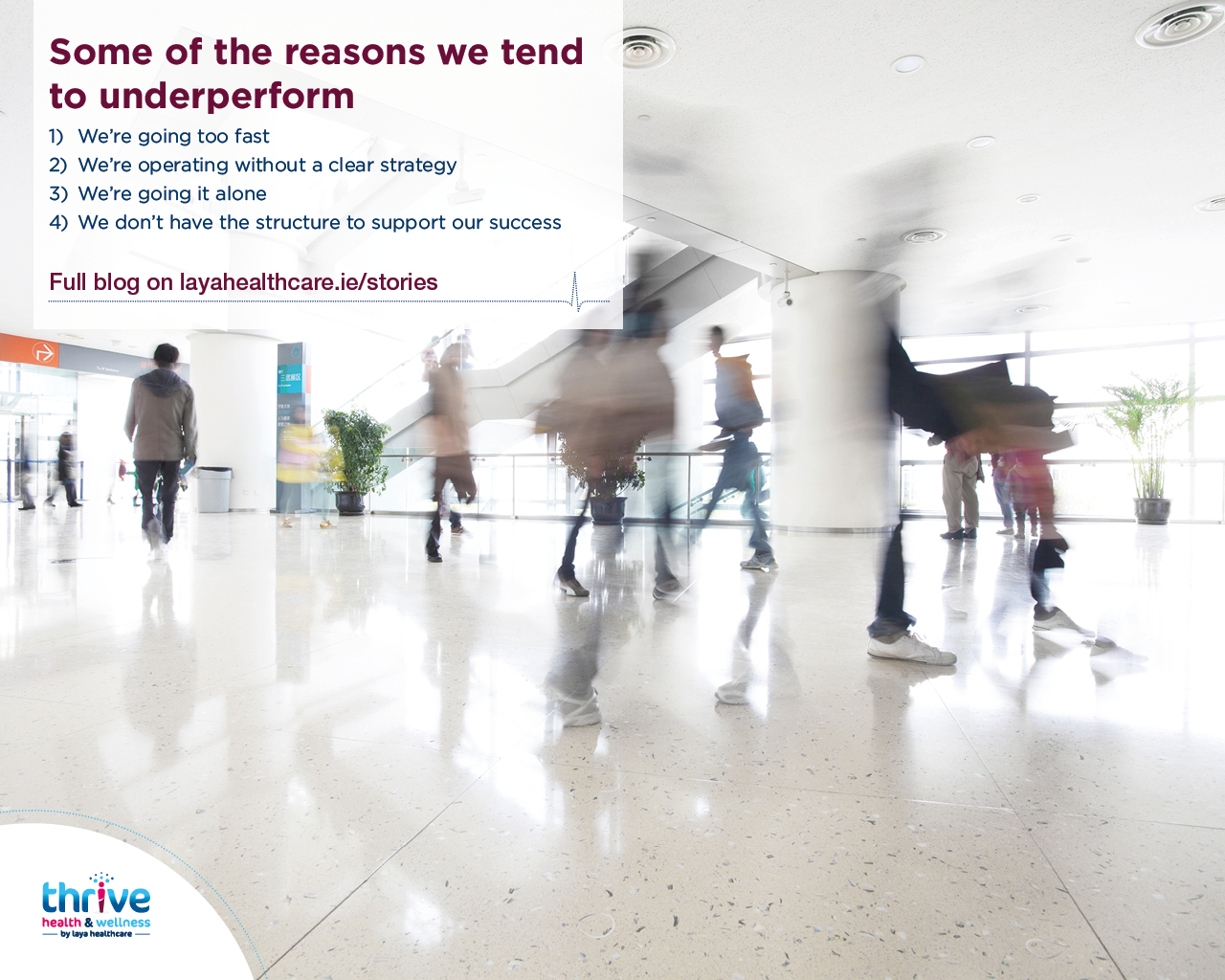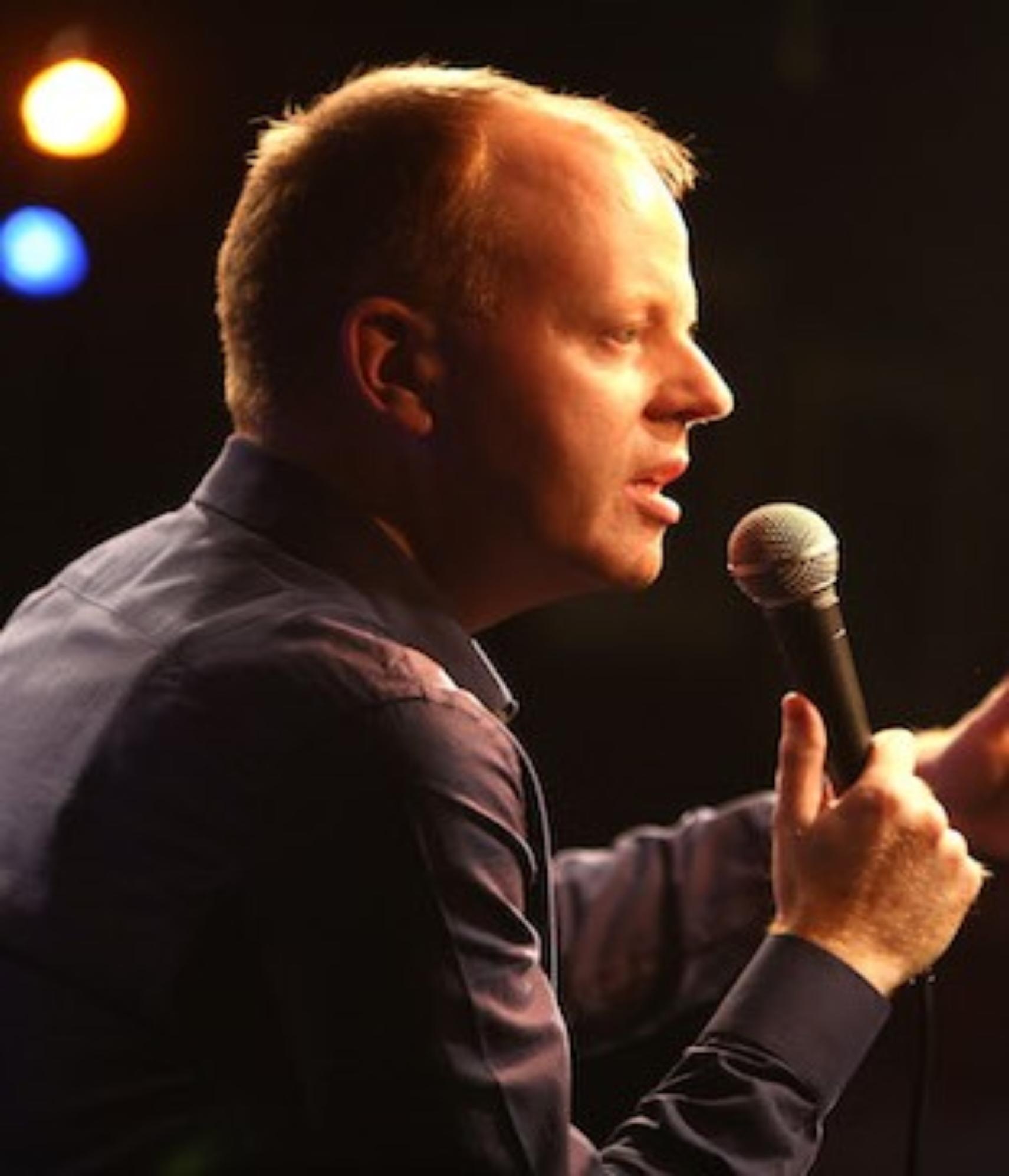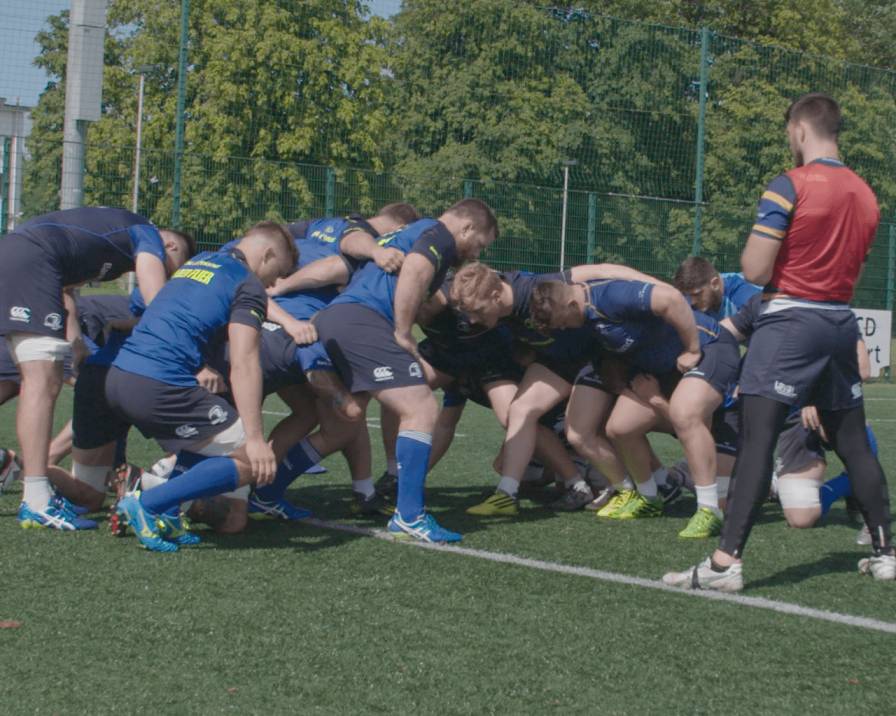The management theories and practices of the late 20th century have given underperformance a bad name. According to the prevailing mindset, underperformance is something to be treated with disdain.
We hear that under-performers need to be dropped from the team, or rooted out, or in the Jack Welch view of the world, given the heave-ho. That particular perspective is avoiding an uncomfortable truth: all of us are underperforming to a certain degree. In this technological age, we often compare our performance to computers or machines, but we are all flawed human beings, with weaknesses and biases to go with our talents and capabilities.
We need to look after ourselves, and allow ourselves to give life our best shot. Facing up to our underperformance is not about being perfect, or beating ourselves up when we fall short, but remaining open to the possibility of improvement and growing our capability to contribute to others.
Underperformance doesn’t have to be synonymous with unhappiness or with being unsuccessful. Instead, it can be a compassionate acceptance of the possibility of “I can do better”. (Not always “I can do more”, but always “I can do better”).

Here are some of the reasons we tend to underperform:
1. We’re going too fast
In the space of a single generation, we’ve moved from a paradigm of scarcity to a paradigm of abundance. We’re now swimming in possibility, opportunity and stimulation. We have immediate access to unlimited knowledge and entertainment via the supercomputers in our pockets.
Have you noticed how often you now hear people saying “Oh, I don’t have time for that anymore”? We’re overcommitted and overwhelmed. And it’s impacting our performance. We’re encouraged to respond to underperformance in two ways: work harder and go faster. We have unlimited access to tools that will shave a piece off here, or give us an extra few percent there.
But evidence is growing now that this is unsustainable. And maybe you’re noticing this too. To use an athletic metaphor, instead of running 5000m or 10000m races every time we work, we need to prepare for running some 100m or 200m races in between periods of reflection, renewal and rest. The answer to being overwhelmed and overworked is not ‘more work’.
2. We’re operating without a clear strategy
When we’re busy and reacting to the latest thing, it’s hard to find the time to think strategically. We often have insightful realisations as we work but we rarely collect these and knit them into a plan that brings us where we want to go. In my professional experience, most people are operating without a clear strategy. Some have versions of a plan, while others have vague ideas about what’s important, but confusion outweighs any clarity.
Often, true clarity only emerges after a crisis. It’s a pity we have to wait.
Formulating a strategy and developing effective plans requires an investment of time and energy, and it’s almost always a wise move.
But, to paraphrase Seth Godin, it’s hard to write poetry when you’re throwing up on a rollercoaster.
3. We’re doing it alone.
John Wayne was the embodiment of the ‘rugged individualist’. His approach to life made for great Westerns in the cinema but it’s not an ideal philosophy for the 21st century professional.
When things get tough, it’s a mistake to retreat within ourselves. It’s a mistake to ‘man up’ and convince ourselves that we can handle it on our own. Maybe we can struggle through, but we’re missing out on so much by not involving others.
We’re missing out on a challenge to limiting beliefs in our thinking, we’re missing out on support that can give us confidence but most of all we’re missing out on alternative perspectives and solutions for any situation.
We make progress through conversations, not by avoiding them.
4. We don’t have the structure to support our success
The best of intentions and the loftiest of ambitions will remain unfulfilled without a structure to implement them.
We see the same pattern unfolding every year with New Year’s Resolutions. People make well intentioned efforts to change various behaviours but without a supporting system, the half-life of enthusiasm is short, and the changes fizzle out.
We need checks and balances, and accountability. All of the systems and processes that matter in our world have them, and for good reason. Why should we expect to be different. The biggest price we have to pay for our failings in this regard is that we avoid the ‘hard stuff’. But that’s typically the stuff that matters most and brings us the greatest benefit in the long run.
*****
How can we look after ourselves better
To address the challenge of overwhelm, we need to deliberately slow down. By committing to time in a distraction-free environment, we can be more mindful of what’s happening with us and around us. And when we create the space for unhurried reflection, then real learning can occur.
To address the challenge of lack of clarity, we need to take a systematic approach to becoming aware of what’s really going on. Maps are useless to us unless we can pin-point the “you are here” position. By raising awareness of what’s important for us at that moment, then the road ahead becomes clearer.
To address the challenge of isolation, we need to tap into our inner courage and become open to external challenge and support. Honest conversations can help to untangle any knot. And we’re better off when we speak up first, rather than waiting to be asked.
To address the challenge of structure, we need to accept our flaws, and use our experience and accumulated wisdom to design an approach that is most helpful for us. Accountability to others almost always trumps self-discipline. Humility helps us assemble a supporting cast.
And most of all, we need to be a good friend to ourselves. Our performance depends on it.
Laya healthcare looks after the business needs of over 140,000 members, learn more here






.jpg)
